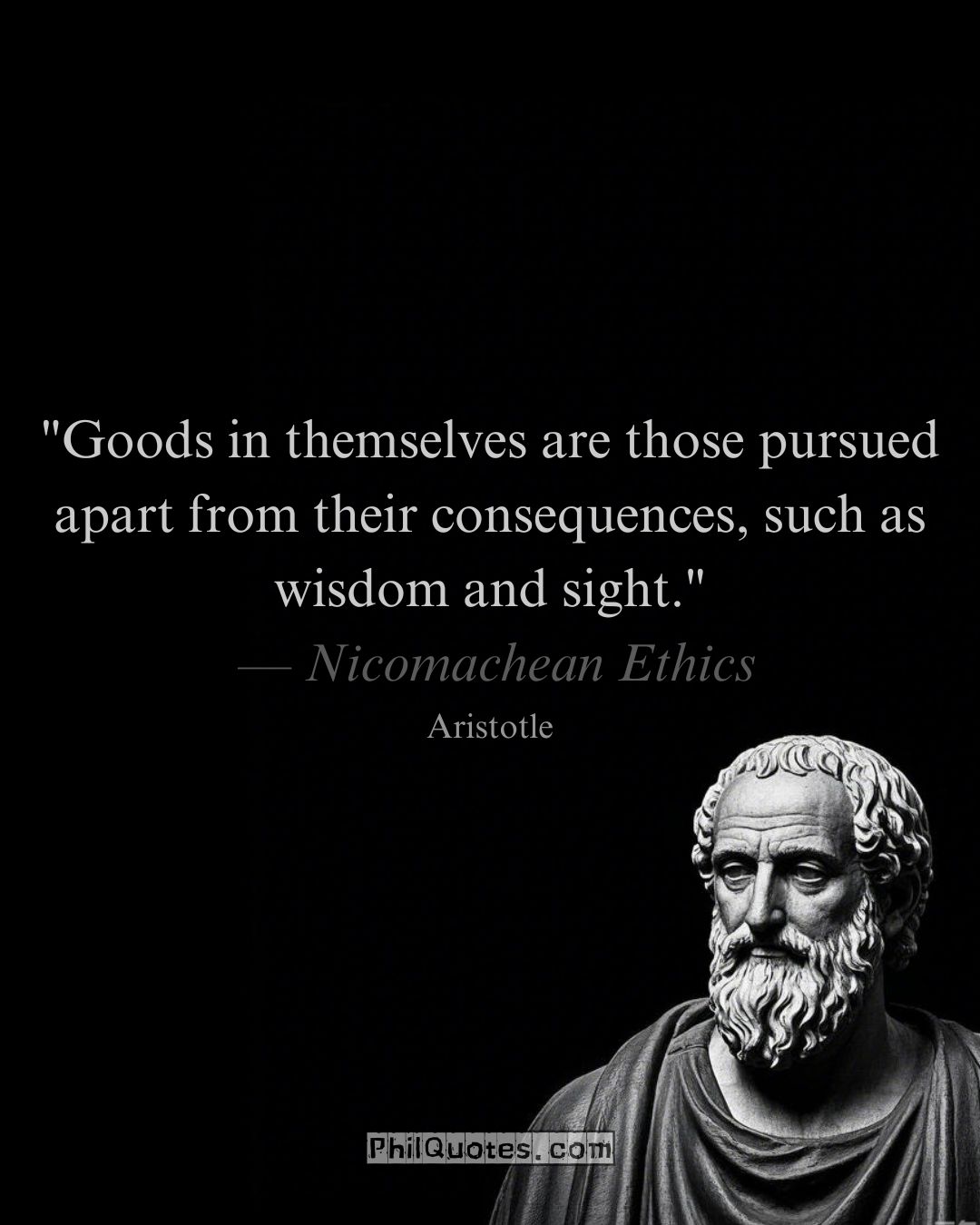
“Goods in themselves are those pursued apart from their consequences, such as wisdom and sight.”
— Aristotle, Nicomachean Ethics, Book I, Chapter 6
Simple Explanation:
Aristotle distinguishes intrinsic goods (valued for their own sake) from instrumental goods (valued for outcomes). Wisdom (contemplating truth) and sight (experiencing beauty) are “self-justifying” — like stars shining whether humans gaze or not.
Real-World Connection:
① Reading Philosophy →
You study Kant at midnight → gain no money/fame (no consequence) → feel awe at human reason (good in itself).
② Birdwatching in Silence →
You observe a kingfisher’s dive → capture no photo (no utility) → experience sublime grace (sight as self-contained good).
③ The Hidden Polarity →
Modern society obsesses over metric-driven goods (GDP growth, social media metrics) — Aristotle’s “self-lit goods” (art creation, scientific curiosity) become radical acts of reclaiming non-instrumental living.